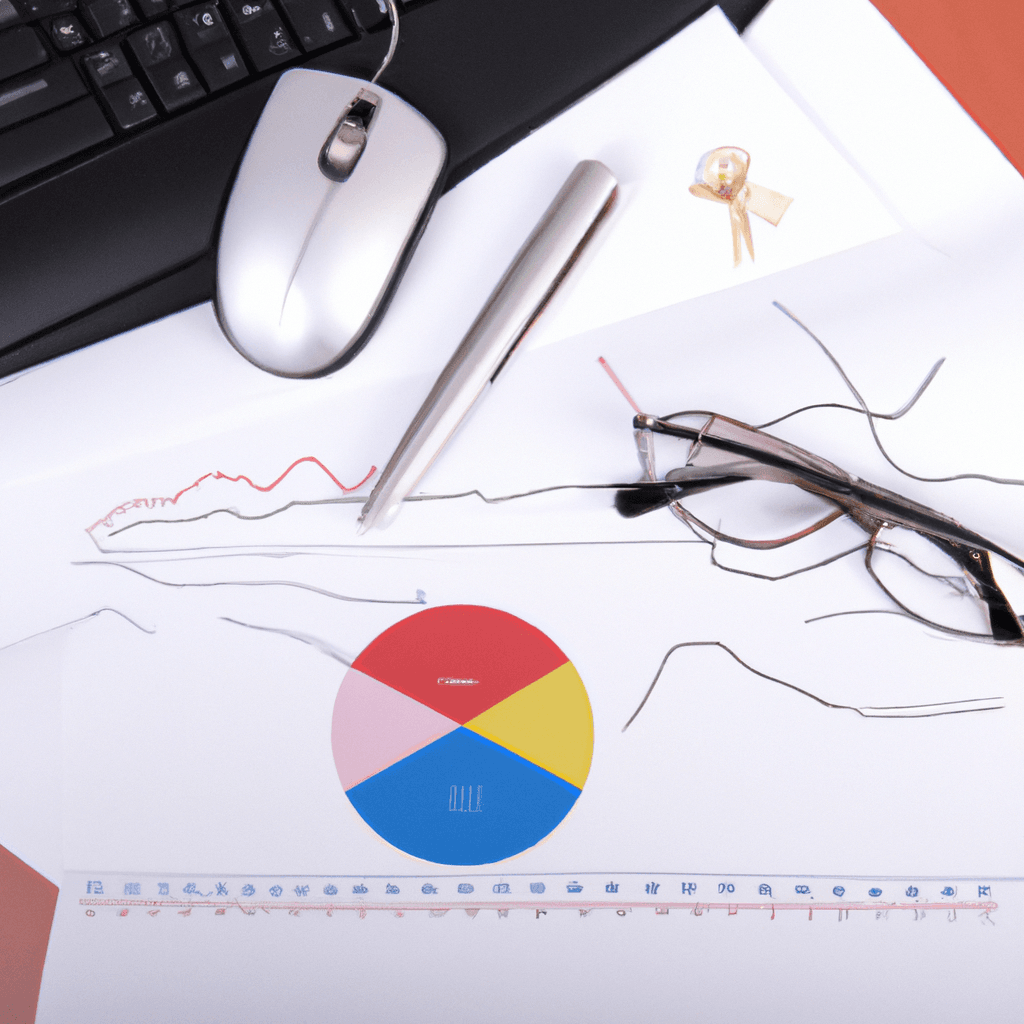Ace Your Interview: Top Tips for a Memorable Impression

A) Research the Company
One of the most effective ways to impress in an interview is to demonstrate a thorough understanding of the company. Interviewers are often pleased when a candidate shows a genuine interest in the company's mission, recent achievements, and industry standing. Before the interview, spend some time on the company’s website, read recent press releases, and understand their competitors. This knowledge will not only help you answer questions more effectively but also tailor your responses to align with the company’s goals and values.
Here’s a detailed breakdown of the areas a candidate should research:
1. Company Overview
- Mission and Vision: Understand the core mission, vision, and values of the company. This gives insight into the company's goals and how they see their future.
- History: A brief look at the company’s history can provide context about its growth, key milestones, and evolution in its industry.
2. Products and Services
- Familiarize yourself with the products or services the company offers. Knowing the key features, benefits, and target markets of their primary offerings can help tailor your answers to show how you can contribute.
3. Company Culture and Values
- Work Environment: Look into the company's culture and what it’s like to work there. Sites like Glassdoor, LinkedIn, and even the company’s social media pages can offer insights into the work environment and company ethos.
- Values: Understanding the company’s values is crucial. They often inform how employees are expected to interact with each other and with clients/customers.
4. Recent News and Achievements
- Stay updated with the latest company news. Look for recent press releases, major projects, changes in leadership, or industry awards. This shows your interest in the company’s current affairs and future direction.
5. Industry Standing
- Market Position: Know where the company stands in relation to its competitors. Understanding its market position can help you discuss how you can help the company maintain or improve its standing.
- Competitors: Researching competitors gives you a broader view of the industry landscape. Knowing the competitors’ strengths and weaknesses can help you discuss how your skills and experiences can be particularly beneficial.
6. Financial Health
- While detailed financial data might not always be available, gaining a basic understanding of the company's financial health (through annual reports if it's a public company, or industry analysis reports) is beneficial. This can guide discussions on job stability and growth potential.
7. Leadership
- Know the key people in the company, especially those in leadership roles. Understanding their backgrounds and their roles within the company can provide talking points and help you understand the leadership style within the organization.
8. Clientele and Partners
- If applicable, familiarize yourself with the company's major clients or partners. This can be particularly important in client-facing roles or in industries where networking and relationships are key.
9. Future Prospects
- Look for information on the company’s future plans, such as upcoming projects, expansions, or new ventures. This can help you discuss how you can contribute to these future goals.
B. Prepare Thoughtful Questions
Questions are a crucial part of any interview. They reflect your enthusiasm for the position and your proactive approach to your career. Prepare a list of insightful questions that demonstrate your knowledge of the company and your serious intent about the role. Inquire about specifics such as the team dynamics, the technologies used, or recent projects. Avoid generic questions that could be easily answered by a quick website visit.
Here are several examples of insightful questions you might consider asking during an interview:
1. Questions About the Role
-
What does a typical day look like for someone in this position?
- This question helps you understand the day-to-day responsibilities and if they align with your expectations and skills.
-
What are the immediate challenges facing the person in this role?
- Asking this gives you insight into what the priorities might be soon after you start, and how you can prepare to face them.
-
Can you describe the team I’ll be working with?
- This shows your interest in the team dynamics and how you can fit into and contribute to the team.
2. Questions About Training and Development
-
What training programs are available to employees?
- This question indicates your eagerness to grow and improve within the company.
-
How does the company support professional development and career growth?
- This helps you understand the pathways for advancement and the company’s commitment to its employees' growth.
3. Questions About Company Culture and Values
-
How would you describe the company culture here?
- The answer will help you gauge whether the work environment aligns with your values and working style.
-
What are the company's core values, and how are they reflected in the workplace?
- This shows your interest in the company’s ethical guidelines and culture.
4. Questions About Company Strategy and Performance
-
Where do you see the company in the next five years?
- This question can reveal insights into the company’s future and if there are upcoming changes or challenges.
-
How has the company changed over the last few years, and what are the biggest challenges it faces currently?
- This demonstrates your interest in the company’s trajectory and industry challenges.
5. Questions About Feedback and Performance Evaluation
-
How is feedback given here?
- Understanding how feedback is provided can help you gauge how the company ensures employees are on the right track and how open the communication channels are.
-
What metrics or goals will my performance be evaluated against?
- This question helps clarify what success looks like in the position and how it is measured.
6. Question About Next Steps
-
What are the next steps in the interview process?
- This shows your eagerness to proceed and helps you prepare for any subsequent phases of the hiring process.
C. Showcase Your Knowledge Tactfully
While it’s important to let your knowledge shine, it’s equally crucial to do so tactfully. Strategically mention your research and understanding of the company during your responses. For example, reference a recent company milestone or project you admire, and tie it back to your skills and experiences. This approach shows that you’re well-prepared and deeply interested in being part of their team.**** Here are a few examples of how you might seamlessly integrate your knowledge into your interview responses:
Example 1: Referencing Recent Company News
Context: The interviewer asks about your ability to handle change. Response: "I noticed in a recent press release that your company is planning to expand into the Asian market next quarter. It’s clear that adaptability will be key during this growth phase. In my previous role at [Company X], I was part of a team that successfully navigated entry into a new market, which involved rapidly adapting to new cultural norms and business practices. I’m excited about the possibility of bringing that experience to your team and contributing to your expansion goals."
Example 2: Connecting Your Skills to Company Projects
Context: The interviewer asks why you applied for this position. Response: "I’ve been following your company’s innovations in renewable energy, particularly the recent launch of the [Specific Product or Initiative]. My background in environmental science and my recent project management experience with similar initiatives make me a great fit for this role. I am particularly impressed by your company’s commitment to sustainability, and I am eager to contribute to these types of projects."
Example 3: Aligning with Company Values
Context: The interviewer asks what you look for in a company culture. Response: "One of the reasons I was drawn to your company is your commitment to community involvement and employee wellness. I read about your annual community service program and the wellness resources provided to employees, which aligns closely with my personal values. I believe that the best work comes from a supportive environment, and I see that being valued here."
Example 4: Demonstrating Industry Awareness
Context: Discussing industry challenges during the interview. Response: "Given the regulatory changes coming in our industry, I believe companies like yours are well-positioned to lead the market. During my time at [Company X], where I dealt with similar regulatory challenges, I developed a comprehensive approach to ensure compliance without sacrificing innovation. I am particularly impressed by your proactive steps in this area as seen in your recent [specific action or initiative]."
Example 5: Showing Long-Term Interest and Knowledge
Context: When asked about your five-year career plan. Response: "I am very impressed with the growth trajectory of your company, especially with recent investments in technology and research. Over the next five years, I would like to grow into a leadership role, contributing to strategic decisions that enhance product development and market penetration. My career goal aligns with the directions you’ve outlined in your recent annual report, and I am eager to contribute to these efforts."
D. Anticipate Potential Questions
Anticipating the interviewer's questions can greatly aid in delivering confident and well-thought-out answers. Think about the typical questions that are asked in interviews, such as inquiries about strengths, weaknesses, and past project experiences. Also, consider the specific requirements of the job role and prepare to discuss how your background makes you a perfect fit.
Here are examples of questions you might expect and how to prepare thoughtful responses:
1. General Interview Questions
-
Tell me about yourself.
- Prepare a concise narrative that highlights your education, relevant work experiences, and why you're interested in this role at this company.
-
What are your strengths and weaknesses?
- Identify strengths that are relevant to the job. When discussing weaknesses, choose those you are actively working to improve and describe the steps you are taking to address them.
-
Why do you want to work for us?
- Demonstrate knowledge of the company’s culture, projects, or achievements that align with your career goals.
-
Where do you see yourself in five years?
- Show ambition aligned with the company’s growth. Discuss how the role fits into your broader career plans.
2. Role-Specific Questions
-
How do you handle tight deadlines and pressure?
- Provide examples from your past experiences where you successfully managed projects under tight deadlines and the strategies you used.
-
Can you describe a challenge you faced in a previous role and how you handled it?
- Choose a relevant challenge and focus on the solution and the outcome, highlighting your problem-solving skills and resilience.
3. Questions Related to Company-Specific Knowledge
-
What do you think about our latest product launch?
- Research recent product launches. Discuss your thoughts on its impact and how it fits within the market, showing your industry knowledge and analytical skills.
-
How do you see our industry evolving over the next few years?
- Demonstrate understanding of industry trends and how they might affect the company. Mention any challenges or opportunities you foresee.
4. Questions About Adaptability and Culture Fit
-
How do you handle feedback?
- Share examples demonstrating that you view feedback as a valuable tool for personal and professional growth.
-
Can you give an example of how you have worked effectively within a team?
- Describe a specific situation where you collaborated with others, emphasizing your communication skills and teamwork.
5. Questions on Technical Skills and Experience
-
Can you walk us through your experience with [specific software/tool]?
- Be prepared to discuss your proficiency with tools or technologies listed in the job description, including examples of how you’ve used them effectively in past roles.
-
What methodologies do you use in your work?
- If applicable, discuss methodologies like Agile, Scrum, or Lean, and give examples of projects where these were applied.
E. Practice Makes Perfect
Practice is key to easing interview nerves and refining your delivery. Conduct mock interviews with a friend or mentor to simulate the interview environment. Ask for feedback on your answers, body language, and any nervous habits you might need to control. Regular practice can make a significant difference in your actual performance.**** Here's an example of how a candidate might engage in effective practice to prepare for an interview:
Step-by-Step Interview Practice Plan
Step 1: Research and Preparation
- Gather Information: Compile details about the company, the industry, the role, and the interviewers if possible.
- Anticipate Questions: List potential questions based on the job description, your research, and common interview questions.
- Prepare Answers: Develop strong, structured responses for each anticipated question, focusing on clear communication of your skills and experiences.
Step 2: Practice Delivery
- Solo Practice: Start by rehearsing your answers aloud. This helps you refine your responses and ensures you are comfortable delivering them.
- Record Yourself: Use a camera or your phone to record your practice sessions. This allows you to review your body language, tone, and pacing.
- Mirror Practice: Practice in front of a mirror to monitor your facial expressions and body language, making adjustments to appear more confident and engaged.
Step 3: Mock Interviews
- Friends or Family: Arrange for a mock interview with a friend or family member. Provide them with a list of questions and ask for constructive feedback on your answers and delivery.
- Professional Services: Consider using professional interview coaching services or online platforms that offer virtual mock interviews with feedback from experienced professionals.
- Peer Practice: If possible, partner with a peer also preparing for interviews. Take turns interviewing each other, which can provide valuable insights and feedback.
Step 4: Feedback and Refinement
- Analyze Feedback: After each practice session, carefully review the feedback received. Pay attention to recurring themes or areas of improvement pointed out by different reviewers.
- Refine Answers: Based on feedback, refine your responses. Focus on areas like reducing filler words, clarifying points that may seem vague, and adding more specific examples.
- Practice Challenging Questions: Pay extra attention to questions where your responses were weak. Develop stronger answers and practice them until you feel confident.
Step 5: Simulate Real Conditions
- Dress Rehearsal: Do at least one mock interview in the attire you plan to wear to the interview. This helps simulate the actual interview day and prepares you mentally.
- Time Your Responses: Ensure your answers are concise yet informative. Aim for 1-2 minutes per answer, which is typical for most interview scenarios.
- Stress Simulation: Try practicing under mild stress—perhaps start with very little preparation time, or have a mock interviewer pose tougher questions unexpectedly to improve your ability to think on your feet.
Step 6: Relaxation and Mindset
- Relaxation Techniques: Learn and practice relaxation techniques such as deep breathing or mindfulness meditation to manage interview day nerves.
- Positive Visualization: Spend time visualizing a successful interview experience, focusing on delivering your answers with confidence and receiving positive reactions from the interviewers.
F. Dress Appropriately
First impressions are important, and your attire plays a significant role in that. The saying "Clothes make the man – or the woman" holds true in professional settings. Choose an outfit that reflects the culture of the company while leaning towards conservatism to be safe. Whether the company is more formal or adopts a casual dress code, make sure you appear neat, tidy, and professional.**** Here’s an example of how to choose the right attire based on the company and the job you're applying for:
Scenario: Applying for a Job at a Corporate Law Firm
Background: Corporate law firms typically have a conservative dress code, reflecting professionalism and attention to detail. It's essential to match this expectation to show that you understand and fit into the corporate culture.
Men's Attire:
- Suit: Opt for a well-fitted, classic suit in navy, black, or dark gray. Ensure the suit is clean, pressed, and free of any lint or hair.
- Shirt: Choose a crisp, white or light blue dress shirt. Make sure it's ironed and fits properly around the neck and cuffs.
- Tie: A silk tie in a conservative pattern or solid color that complements the suit. Avoid overly flashy ties.
- Shoes: Polished black or dark brown dress shoes in a classic style such as Oxfords or Brogues.
- Accessories: Limit accessories to a professional watch, a belt that matches your shoes, and a briefcase or a neat folder for your documents.
Women's Attire:
- Suit: Wear a tailored pantsuit or skirt suit in neutral colors like black, navy, or dark grey. The skirt should be knee-length.
- Blouse: Pair the suit with a conservative blouse in a soft color. Avoid low-cut or overly frilly tops.
- Shoes: Closed-toe pumps in black or navy. Ensure the heels are not too high or flashy; keep it professional and comfortable.
- Accessories: Keep jewelry minimal — perhaps a pair of small earrings and a watch. Carry a professional-looking handbag or a briefcase.
Additional Tips:
- Grooming: Ensure that your hair is neat and conservative in style. For men, a clean shave or neatly trimmed beard is essential. Women should opt for a simple hairstyle that doesn't distract.
- Perfume/Cologne: Use sparingly. It’s important not to overwhelm the interview space with strong scents.
- Final Check: Before leaving for the interview, do a final mirror check to ensure everything looks neat and in place. Make sure there are no tags or loose threads.
Adapting for Different Industries:
- Creative Fields: If you're applying for a job in a more creative industry, you might opt for more color and unique elements while still keeping the look professional.
- Tech Startups: Often more casual, you might wear smart casual attire such as clean, well-fitting jeans, a blouse or shirt, and a blazer.
Conclusion
As you prepare for your upcoming interview, remember that success lies in the details. From understanding the company's culture to anticipating potential questions and dressing appropriately, each step you take brings you closer to making a strong impression. Keep in mind that interviews are not just about showcasing your qualifications and experience, but also about demonstrating your enthusiasm for the role and your fit within the organization. With the right preparation, you can transform any interview from a daunting challenge into a golden opportunity.

Unleashing Creativity: 40 Unique Prompts for Effective UI Generation

Face-Off: Taiga UI vs ReactJS vs Vue.js vs NextJs vs Qwik

Kickstart Your Journey with Generative AI: A Beginner’s Guide to Integrating AI Creativity in Your Programs

Master Cover Letter Guide: Create Winning Applications

promptyourjob.com

Cracking the Code: Top JavaScript Interview Questions to Prepare For

Top 101 Python Backend Repositories for Developers

Navigating High-Paying Tech Careers: A Guide to Top-Tier Opportunities

Mastering the Interview: 101 Essential Data Science Questions and Answers

Skyrocket Your Tech Career: Top Free Online Courses to Explore

Embracing Efficiency: A Guide to CI/CD Adoption and the Top Tools to Streamline Your Development Process

How to Write an Impressive Letter of Work Experience: Strategies and Tips

Navigating the Labor Market Landscape: Embracing Resource and Energy Engineering in the Age of AI

Insider Resume and Cover Letter Strategies for Success From a Senior Recruiter

Mastering Job Interviews Across Diverse Industries: Your Ultimate Guide

Is an Online Master of Science in Analytics the Key to a Successful Career Change?

Supercharge Your Team: Top AI Tools to Enhance Productivity in Development, Product Management, and Sales

How AI is Unleashing the Job Market and Trends in 2024

Ransomware Guide: Protect and Prevent Attacks

Understanding Entry-Level Positions

Must-Use Cybersecurity Tools Today: Importance, Benefits, Costs, and Recommendations

What is Docker?

Mastering Resume Formats: A Guide to Optimal Job Application

Single Sign-On (SSO) Basics: Security & Access

Mastering Linux: Essential Advanced System Techniques

Python Interview Questions: Master All Levels

Top Programming Books for Job Interviews

Kafka vs Amazon MQ on AWS: A Comprehensive Comparison

Mastering Jira: A Comprehensive Guide for Beginners

PostgreSQL basics

Postgres 101: Essential Interview Q&A to Ace Your Database Interview

What is CSS: The Stylist of the Web

Integrating Domain Knowledge with Technological Prowess: A Strategic Approach
